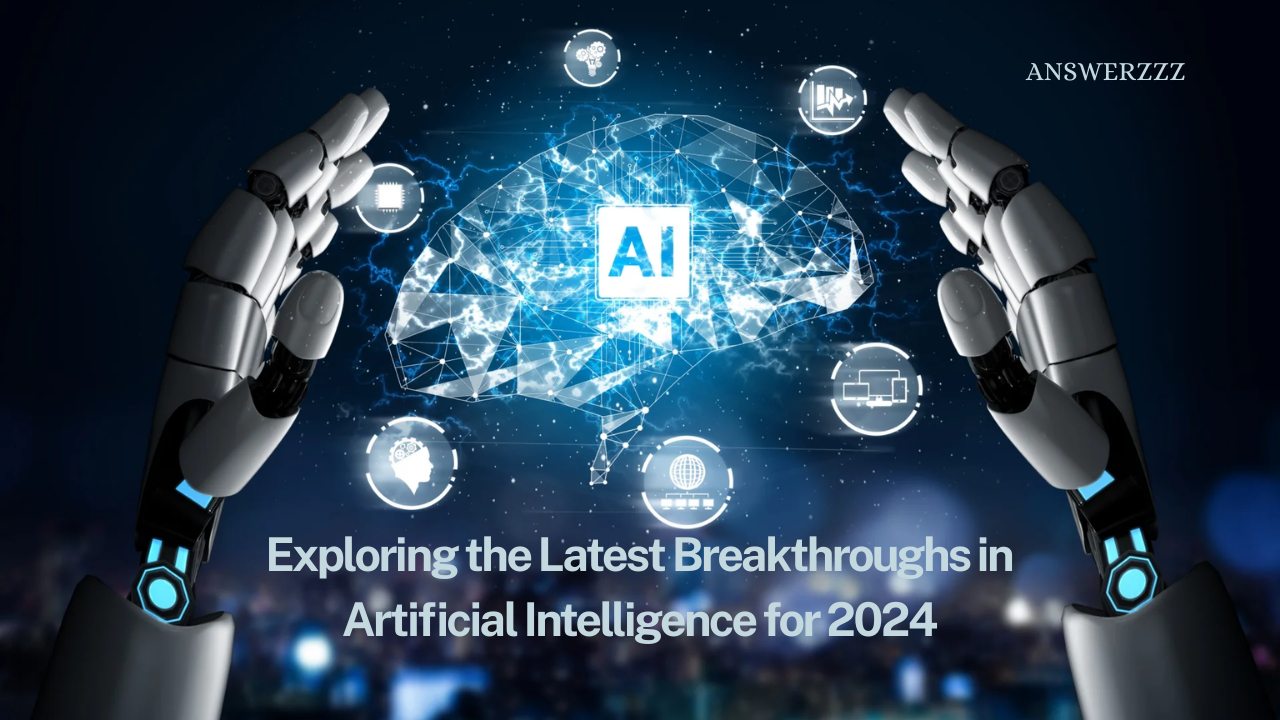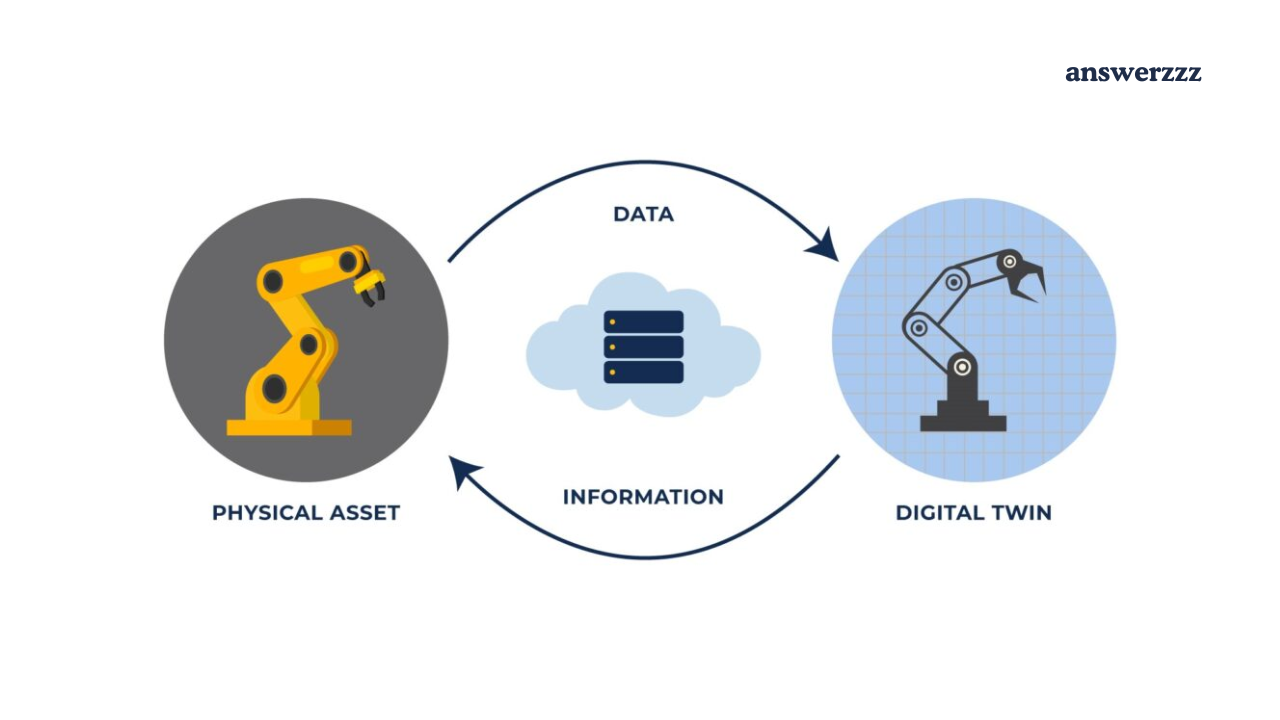As we delve into 2024, the field of artificial intelligence (AI) continues to evolve at an unprecedented pace, transforming various aspects of our daily lives, industries, and technological landscapes. From advanced machine learning algorithms to innovative applications in healthcare, finance, and beyond, the breakthroughs in AI are reshaping our understanding of what machines can achieve. This article explores the latest advancements in artificial intelligence, highlighting their implications, challenges, and future potential.
One of the most significant breakthroughs in AI for 2024 is the continued advancement of large language models (LLMs). These models have shown remarkable capabilities in natural language processing, allowing for more fluid interactions between humans and machines. Enhanced by increased computational power and improved training datasets, LLMs can generate coherent, contextually relevant responses and even create original content. The evolution of models like OpenAI’s GPT-4 and Google’s BERT has paved the way for applications in chatbots, virtual assistants, and content creation tools that are more intuitive and capable than ever before. This progression enables businesses to automate customer support, streamline communication, and generate creative content, all while enhancing user experience.

In addition to language models, advancements in computer vision are also noteworthy in 2024. Breakthroughs in convolutional neural networks (CNNs) have improved object detection and recognition capabilities, enabling machines to understand and interpret visual data more accurately. These improvements have profound implications for industries such as autonomous vehicles, where reliable image recognition is crucial for safety and navigation. AI-powered cameras and sensors can now detect pedestrians, recognize traffic signs, and assess road conditions with remarkable precision. As a result, the integration of computer vision in self-driving cars is expected to accelerate, leading to safer transportation solutions and increased adoption of autonomous technologies.
Another exciting development in AI for 2024 is the rise of generative adversarial networks (GANs). GANs have been instrumental in producing realistic images, videos, and audio by pitting two neural networks against each other: a generator and a discriminator. This adversarial training technique has led to significant improvements in the quality of generated content, making it increasingly difficult to distinguish between real and synthetic media. The applications of GANs are vast, ranging from video game development to film production and even fashion design. By enabling creators to produce high-quality content efficiently, GANs are reshaping creative industries and opening new avenues for artistic expression.
Healthcare is another area where AI breakthroughs are making waves in 2024. The integration of AI in medical diagnostics and treatment planning has become increasingly sophisticated, allowing for more personalized patient care. Machine learning algorithms can analyze vast amounts of patient data, including genetic information, medical history, and lifestyle factors, to provide tailored treatment recommendations. For instance, AI-driven tools are now being used to predict disease risks, identify potential drug interactions, and recommend lifestyle changes for patients. Moreover, AI-powered imaging technologies are enhancing the accuracy of medical imaging, aiding radiologists in detecting anomalies and diagnosing conditions more effectively. As AI continues to be integrated into healthcare systems, we can expect significant improvements in patient outcomes and overall healthcare efficiency.
Ethics and responsible AI development remain paramount in discussions about AI advancements. As AI systems become more pervasive, concerns about bias, privacy, and accountability have gained prominence. In 2024, organizations and researchers are increasingly focused on developing frameworks for ethical AI deployment. Initiatives aimed at ensuring transparency in AI algorithms, minimizing bias in training data, and establishing accountability for AI-driven decisions are being prioritized. Moreover, the implementation of regulations governing AI usage is on the rise, prompting organizations to adopt responsible practices in AI development. The conversation surrounding ethical AI underscores the need for a balance between innovation and social responsibility, ensuring that technological progress aligns with human values.
The evolution of AI in 2024 is also significantly influenced by advancements in hardware and infrastructure. The development of specialized AI chips, such as tensor processing units (TPUs) and graphics processing units (GPUs), has accelerated the training and deployment of complex AI models. These chips are optimized for parallel processing and can handle the immense computational demands of deep learning algorithms, leading to faster training times and improved performance. Additionally, the proliferation of cloud computing has enabled organizations to access powerful AI resources without the need for extensive on-premises infrastructure. This democratization of AI technology allows startups and smaller enterprises to harness the power of AI, fostering innovation across various sectors.
Moreover, the integration of AI with the Internet of Things (IoT) is gaining momentum in 2024. AI algorithms are being embedded into IoT devices, enabling them to process data locally and make intelligent decisions in real time. This convergence allows for enhanced automation and predictive capabilities in smart homes, industrial applications, and healthcare monitoring systems. For example, AI-powered sensors in smart homes can learn user preferences and adjust lighting, temperature, and security settings accordingly, creating a more personalized living environment. In industrial settings, AI can analyze data from machinery and predict maintenance needs, reducing downtime and optimizing operational efficiency. The synergy between AI and IoT is set to revolutionize how we interact with technology and enhance our daily lives.
The field of AI ethics is rapidly evolving, reflecting the growing awareness of the social implications of artificial intelligence. In 2024, there is a concerted effort to create ethical guidelines and best practices for AI development and deployment. Organizations are increasingly recognizing the importance of diversity in AI teams to mitigate bias and ensure that AI systems are fair and equitable. Moreover, initiatives promoting explainable AI are gaining traction, aiming to make AI decision-making processes more transparent and understandable to users. By prioritizing ethical considerations, the AI community is working to build trust in AI technologies and address societal concerns about their impact.
AI’s role in education is also undergoing significant transformation in 2024. Intelligent tutoring systems and personalized learning platforms are leveraging AI to provide tailored educational experiences for students. These systems can adapt to individual learning styles, track progress, and offer targeted resources to enhance understanding. Moreover, AI-driven tools are facilitating administrative tasks for educators, allowing them to focus more on teaching and student engagement. As AI continues to reshape the education landscape, we can expect improved learning outcomes and greater accessibility to quality education for diverse populations.
Furthermore, the intersection of AI and sustainability is gaining attention in 2024. AI technologies are being harnessed to address environmental challenges and promote sustainable practices. From optimizing energy consumption in smart grids to enhancing agricultural practices through precision farming, AI is playing a vital role in driving sustainability efforts. For instance, AI algorithms can analyze weather patterns, soil conditions, and crop health to provide farmers with actionable insights, resulting in increased yields and reduced resource wastage. As the urgency of climate change continues to escalate, the potential of AI to contribute to sustainability initiatives becomes increasingly critical.

In the financial sector, AI is revolutionizing how institutions manage risks, detect fraud, and provide personalized services. Advanced algorithms can analyze vast amounts of transactional data in real time, identifying suspicious activities and potential fraud attempts with remarkable accuracy. Moreover, AI-driven chatbots are transforming customer service in banking and finance, providing instant assistance and personalized financial advice to customers. As financial institutions embrace AI technologies, we can expect enhanced security, improved efficiency, and a more seamless customer experience.
AI’s impact on the job market remains a topic of debate in 2024. While AI technologies are automating routine tasks and reshaping traditional job roles, they also create opportunities for new jobs and skill requirements. The demand for AI specialists, data scientists, and professionals skilled in machine learning is surging as organizations seek to leverage AI’s potential. Additionally, reskilling and upskilling initiatives are becoming essential to equip the workforce with the necessary skills to thrive in an AI-driven economy. The evolution of AI will undoubtedly reshape the labour landscape, prompting a reevaluation of workforce strategies and educational approaches.
The gaming industry is another sector experiencing significant AI breakthroughs in 2024. AI is being utilized to create more immersive and responsive gaming experiences, enhancing player engagement and enjoyment. Advanced AI algorithms can analyze player behaviour and adapt game dynamics in real-time, providing personalized challenges and narratives. Moreover, AI-generated content is enabling developers to create expansive game worlds and dynamic storylines that evolve based on player choices. As gaming technology continues to advance, the fusion of AI and gaming is set to redefine entertainment and interactive storytelling.
Lastly, the global collaboration in AI research is fostering innovation and knowledge sharing across borders. In 2024, researchers and institutions are increasingly collaborating on AI projects, pooling resources and expertise to tackle complex challenges. International initiatives are promoting open-source AI frameworks, enabling developers worldwide to contribute to the advancement of AI technologies. This collaborative approach not only accelerates the pace of innovation but also encourages diverse perspectives and solutions to global issues.
The breakthroughs in artificial intelligence for 2024 are reshaping our world in profound ways. From advancements in language processing and computer vision to applications in healthcare, finance, and beyond, AI is becoming an integral part of our daily lives. As we navigate the ethical and societal implications of AI technologies, it is crucial to prioritize responsible development and deployment. The future of AI holds immense promise, and by harnessing its potential, we can create innovative solutions that address pressing challenges and enhance the quality of life for individuals and communities worldwide. As we embrace the advancements of 2024, it is essential to remain vigilant and proactive in ensuring that the evolution of AI aligns with our shared values and aspirations for a better future.





